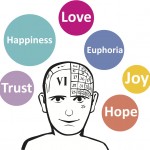
The evidence-base for psychodynamic psychotherapy is growing. A meta-analysis by Shedler published in early 2010 showed that the effect sizes for psychodynamic therapy can be as large as for other ’empirically supported treatments’. However, there are fewer high quality studies available that look at the effectiveness of these therapies for young people.
This systematic review conducted by researchers from London aims to summarise the research about individual psychodynamic psychotherapy for children and young people aged between 3 and 18. The reviewers systematically searched a range of databases and found 34 studies that met their inclusion criteria. The quality of the studies they found was very variable, with many studies being small-scale. However 9 of the 34 studies were randomised controlled trials and 8 of them had an active treatment group to compare with psychodynamic psychotherapy.
The research team made some tentative conclusions:
Although there are relatively few studies of psychodynamic therapies with children and adolescents compared to those focusing on the treatment of adults, those that exist indicate that this treatment can be effective for a range of childhood disorders, as measured by well-validated, standardised research instruments.
Where direct comparisons have been made, psychodynamic treatment of children and adolescents appears to be equally effective to comparison treatments, with mixed findings across studies – some suggesting psychodynamic therapy is more, some less, and some equally effective as other forms of therapy.
They also highlighted a number of ongoing studies that will help to shed light on this topic in coming years, most notably the IMPACT study which is investigating the effectiveness of short-term psychodynamic psychotherapy for relapse prevention among adolescents with moderate to severe depression.
Links
Midgley, N. and Kennedy, E. Psychodynamic psychotherapy for children and adolescents: a critical review of the evidence base. Journal of Child Psychotherapy, 2011: 37(3) 1-26. [Abstract]
Shedler J. The efficacy of psychodynamic psychotherapy. Am Psychol. 2010 Feb-Mar;65(2):98-109. [PubMed abstract]
Randomised controlled trial of brief psychodynamic psychotherapy, cognitive behaviour therapy and treatment as usual in adolescents with moderate to severe depression attending routine child and adolescent mental health clinics (The IMPACT study). [NIHR trial in progress abstract]
